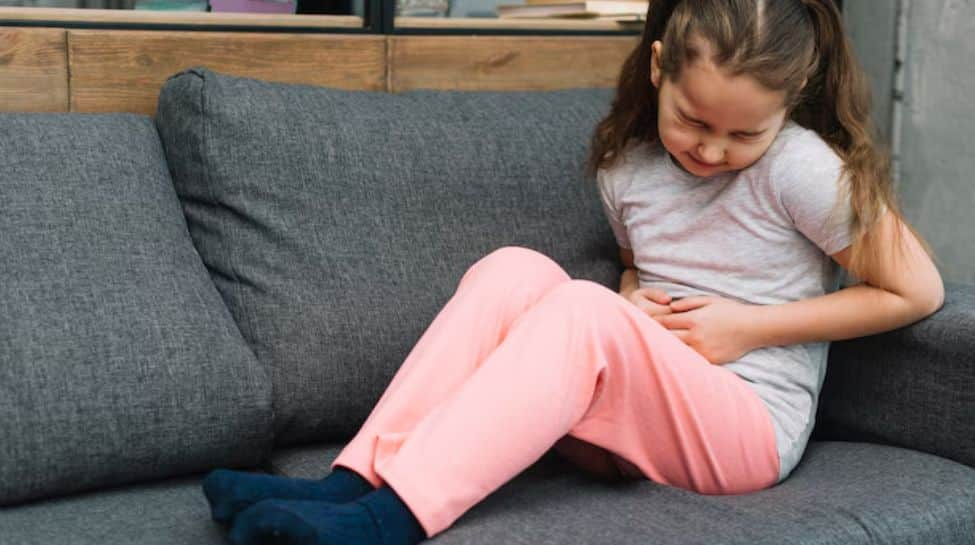The Dose 24:04 Why do we smell (and how concerned should we be about it)? As the weather warms up and we start to spend more time outdoors, many of us will be reminded that people have a tendency to smell. Pharmaceutical companies have tried for years to convince people to purchase products that cover up their smells, even introducing deodorant for the whole body . "We all have B.
O.," Sarah Everts, a Carleton University associate professor and author of The Joy of Sweat: The Strange Science of Perspiration, told Dr. Brian Goldman, host of The Dose podcast.

While pharmaceutical companies continue to market products aimed at encouraging people to cover up their natural scents and help stop sweating, experts say that body odour and sweat are perfectly natural and people shouldn't worry about them quite so much. Why do we sweat? University of Calgary kinesiologist Patricia Doyle-Baker said sweating is a response to the environment. "[Sweating] is a biological advantage, because we can do any type of exercise or be in a hot environment and our body is able to thermoregulate itself," she said.
Both Doyle-Baker and Everts describe sweating as a kind of evolutionary "superpower," because our bodies provided us with a mechanism to rapidly cool down after explosively bouts of exercise. Experts like Toronto dermatologist Dr. Renee Beach recommend against the use of whole-body deodorants.
(Native Whole Body Deodorant) "We are better than any other animal at cooling down," said Everts. Sweating happens when the skin sends signals to the brain indicating that the body is getting hot, triggering sweat glands to release a liquid mixture of mostly water, as well as salt, potassium and carbohydrates. The beads of water that form on our skin evaporate, cooling us down.
People with poor 'personal hygiene' could be fined, kicked out of Montreal's public libraries Deodorant made in New Brunswick kitchen gets worldwide sales That said, the sweat generated by the endocrine glands on our skin is a little different than the sweat produced by the apocrine glands in our armpits or groins. The kind from our armpits and groins are a little fattier, which is part of what leads to the unique mixture of scents we sometimes call body odour — especially when combined with bacteria on our skin. "Although we think of sweat as being odourless, when it mixes with that bacteria, that's what produces the smell," said Doyle-Baker.
How do we smell? Dr. Johannes Frasnelli, a psychologist from Université du Québec à Trois-Rivières, says even the most basic single-cellular organism needs a way to sense its environment. "Let's say there's a sugar present, well then they'd rather go there.
Some toxins present, well then they'd rather move away. And we basically do the same thing," he said. Frasnelli says both our senses of smell and taste are essential for maintaining our airways, our gastrointestinal system and the rest of the body.
Humans are able to smell thanks to our olfactory systems, which allow our noses to identify inhaled molecules and transmit that information to our brains through electrical signals. WATCH | The truth about vaginal detoxing: The truth about vaginal detoxing 5 years ago Duration 4:22 Health Canada has stopped the sale of a natural health care product that is marketed as a way to "detox" vaginas, following an investigation by CBC's Marketplace. Our investigation found that Goddess Vaginal Detox Pearls' claims of cleansing and healing from sexual trauma could lead to serious mental and physical health impacts.
Olfactory information is also processed through the limbic system, the part of the nervous system that's responsible for things like memory. "So when we smell something, the brain areas that are involved in memory formation, in memory retrieval, that are involved in emotions, that are involved in reward, are directly activated," said Frasnelli. The relationship between smell and memory is part of the reason why certain smells can make us feel like we've travelled through time, remembering moments when we first encountered them.
Why do we smell? Frasnelli says our armpits, genitals and buttocks produce a mix of things that are distinct from person to person. "This cocktail of substances is not entirely understood yet what exactly is in it, but we know that this cocktail is individually different between all of us," he said. At the same time, he says that body odour is affected by a number of factors, including the foods we eat, meaning that eating foods with distinct aromas will sometimes make us smell like them.
"We can very well imagine that different cultures eat different things and will therefore smell different because of that," said Frasnelli. Exploring the cultural factor Despite what some might believe, there are very few universally agreed upon bad smells. According to Frasnelli, multiple factors play into our like or dislike of scents, including how strong it is, as well as how long we smell it, and even the emotions surrounding a smell.
A person's reaction to body odour, for instance, can be determined by how familiar they are with a certain smell. Familiar scents can be attractive to us, but scents that are too familiar can protect us from accidentally pursuing a mate who is related to us. Natural deodorants that won't quit on you when things heat up Whole-body deodorant is trending, but do we need it — or are we being scent-shamed? Speaking from personal experience, Frasnelli added that different cultures have different views on body odour.
" I grew up in Europe, and I've been living in North America and Canada now for 20 years, and I can definitely confirm that the rules around body hygiene are different," he said. "What is acceptable as body odour in the parts of Europe where i grew up are not acceptable in the part of of North America." The pitfalls of too much deodorant Dr.
Renee Beach, a Toronto dermatologist, said there are potential social and medical downsides to wearing too much deodorant to mask our natural scent. "The risk socially is smelling like a walking perfume factory," said Beach in an email to CBC. "This is brutal in certain close encounter situations like elevators, medical appointments.
" Though not quite deodorant, French President Emmanuel Macron's alleged overuse of cologne generated headlines after an author claimed that aides could smell the politician before he walked into the room. Medically speaking, wearing deodorant risks irritating skin, especially skin that's inflamed or broken, said Beach. A shower with soap and water should be enough to keep us hygienic, experts say.
(Lukas Wall/CBC) Beach says the risk of skin allergy isn't dependent on the amount worn, but on the ingredients in the deodorant. However, she cautions against using whole-body deodorant. Instead, she says showering regularly with soap and water should suffice in maintaining good hygiene.
"In particular, the concept of intimate skin deodorant/body perfume is not only unnecessary for the vast majority of us, but potentially irritating to our skin and in our intimate areas," said Beach. "Unfortunately some of the advertising around this concept has preyed upon our insecurities and fears of having odour when body scents are completely natural and, again, often sufficiently controlled with daily bathing.".
Health

Whole-body deodorant is no fix for accepting that everybody stinks sometimes
While pharmaceutical companies continue to market products aimed at encouraging people to cover up their natural scents and help stop sweating, experts say that body odour and sweat are perfectly natural and people shouldn't worry so much about a little sweat and body odour.















